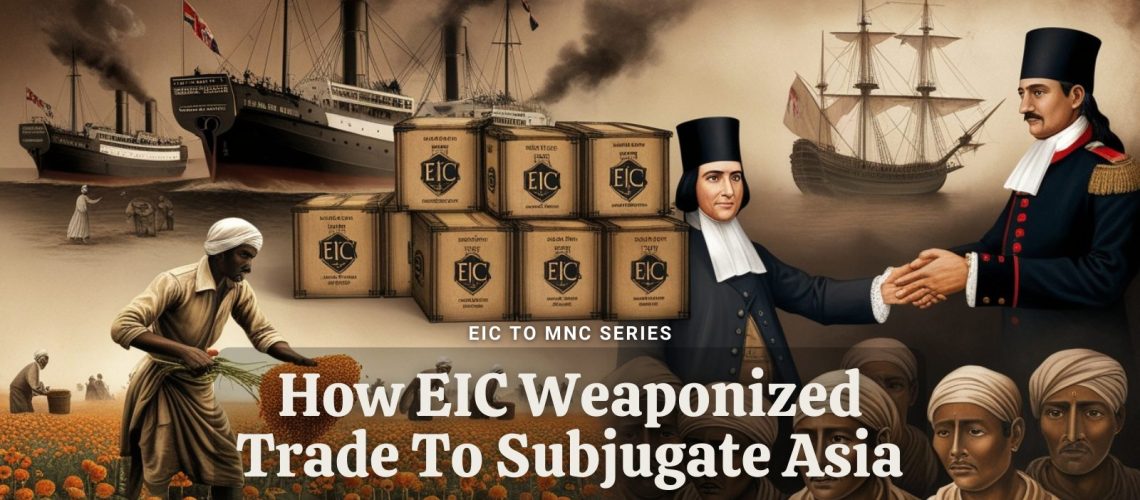The East India Companies (EICs) are often remembered as maritime trading firms that ferried tea, spices, and silks between the East and West. Yet, beneath the romance of merchant adventurism lies a far more coercive and extractive truth: these companies were not merely commercial ventures, but quasi-sovereign instruments of imperialism. Their success rested not on fair trade but on monopolistic control, military force, and the ruthless exploitation of addictive commodities—chief among them, opium.
This article from the EIC to MNC Series unpacks the economic and geopolitical machinery of the EICs, particularly the British and Dutch, whose transformation of a humble narcotic into a geopolitical weapon altered the destinies of India, China, and Southeast Asia.
In this article
The Colonial Trade Triangle
The EICs initially imported spices, tea, and silk from Southeast Asia and China to Europe—commodities highly prized in Western markets. However, they soon faced a classic …


